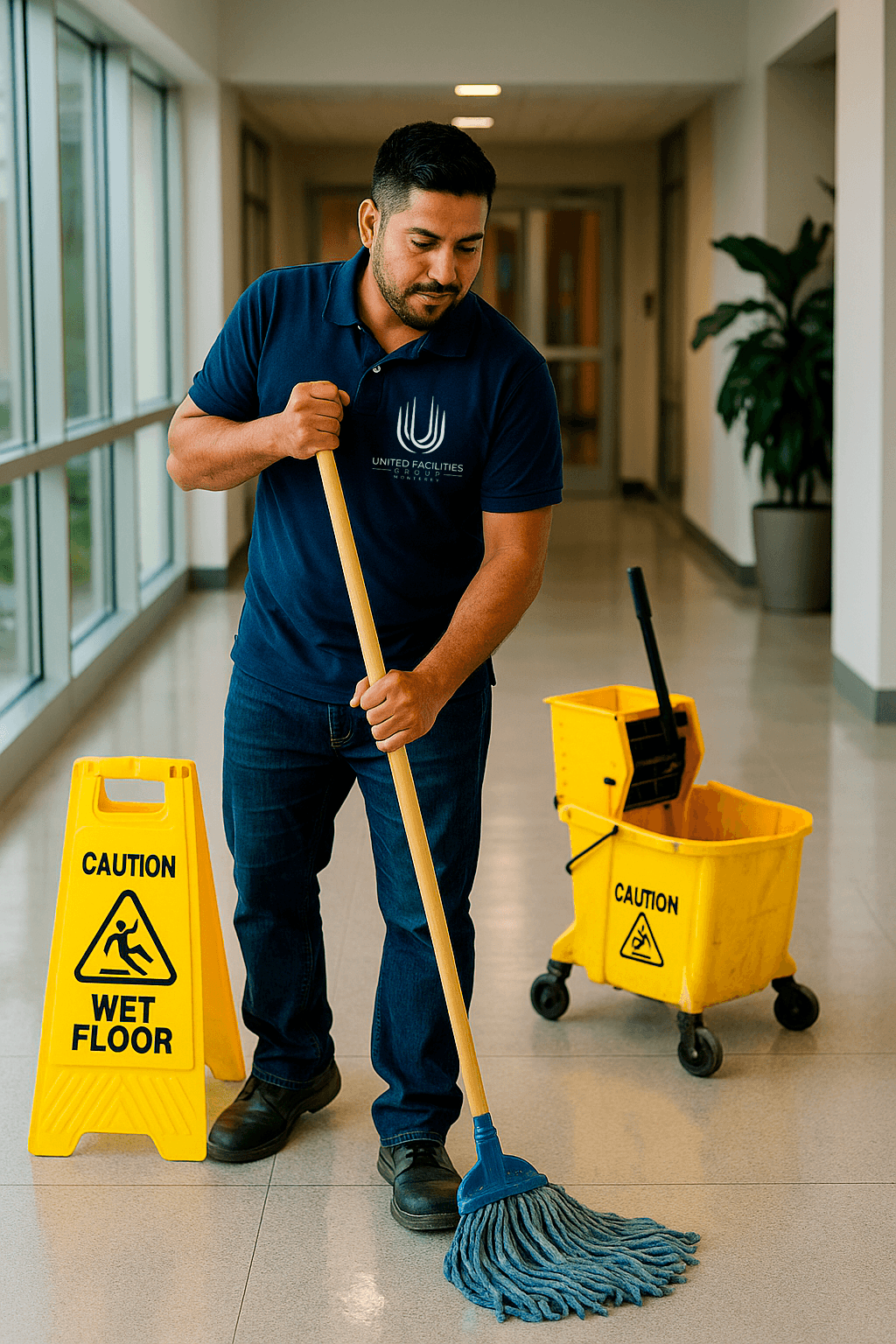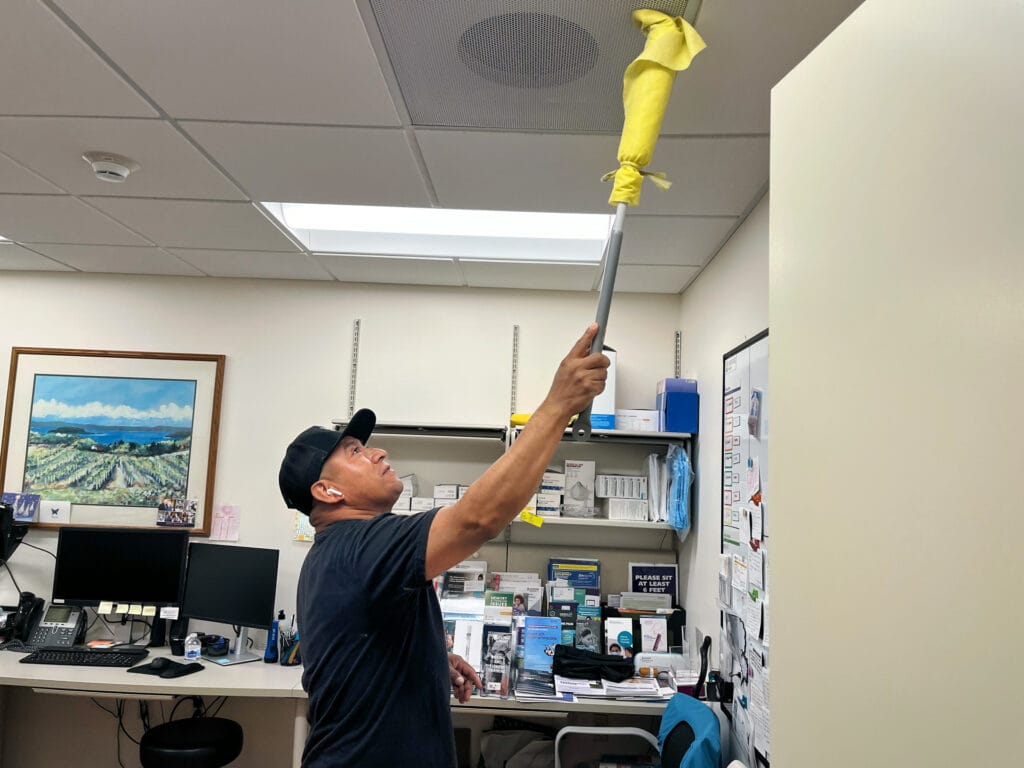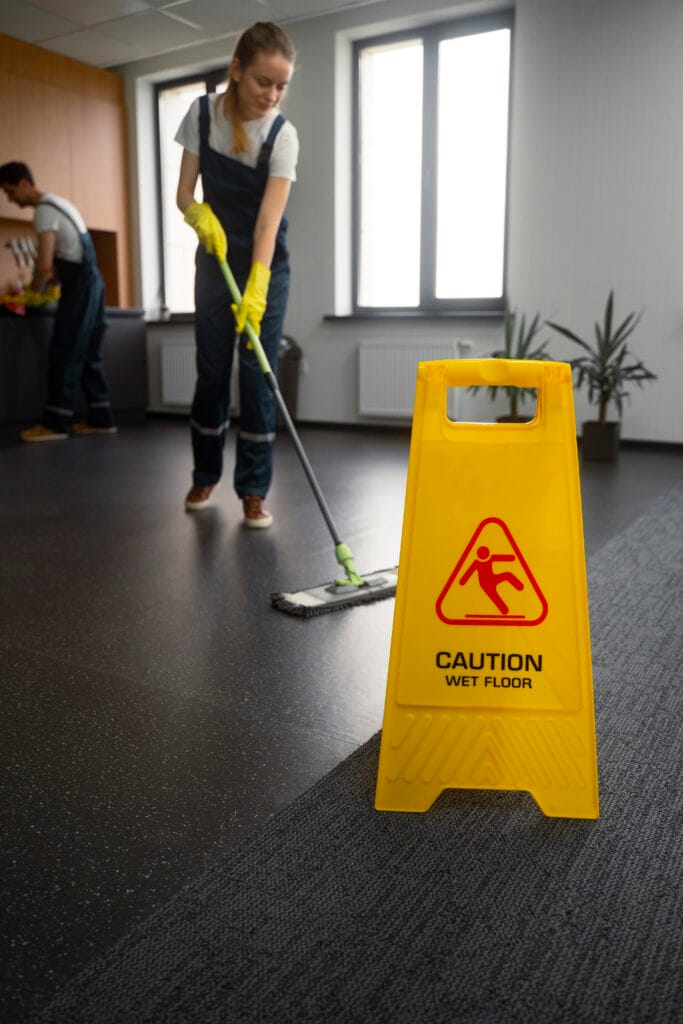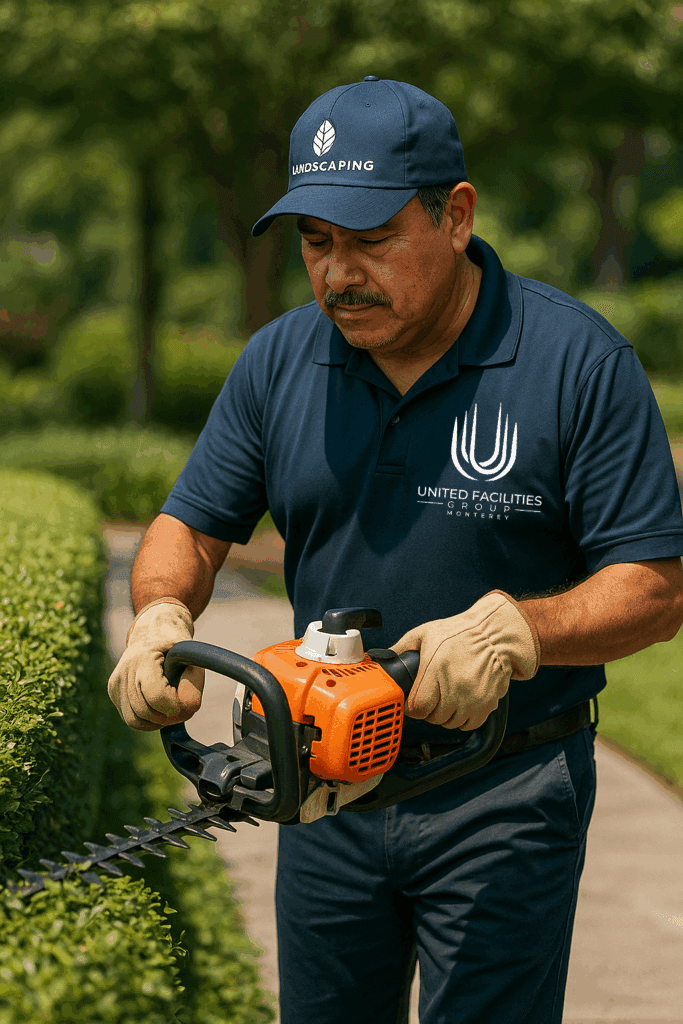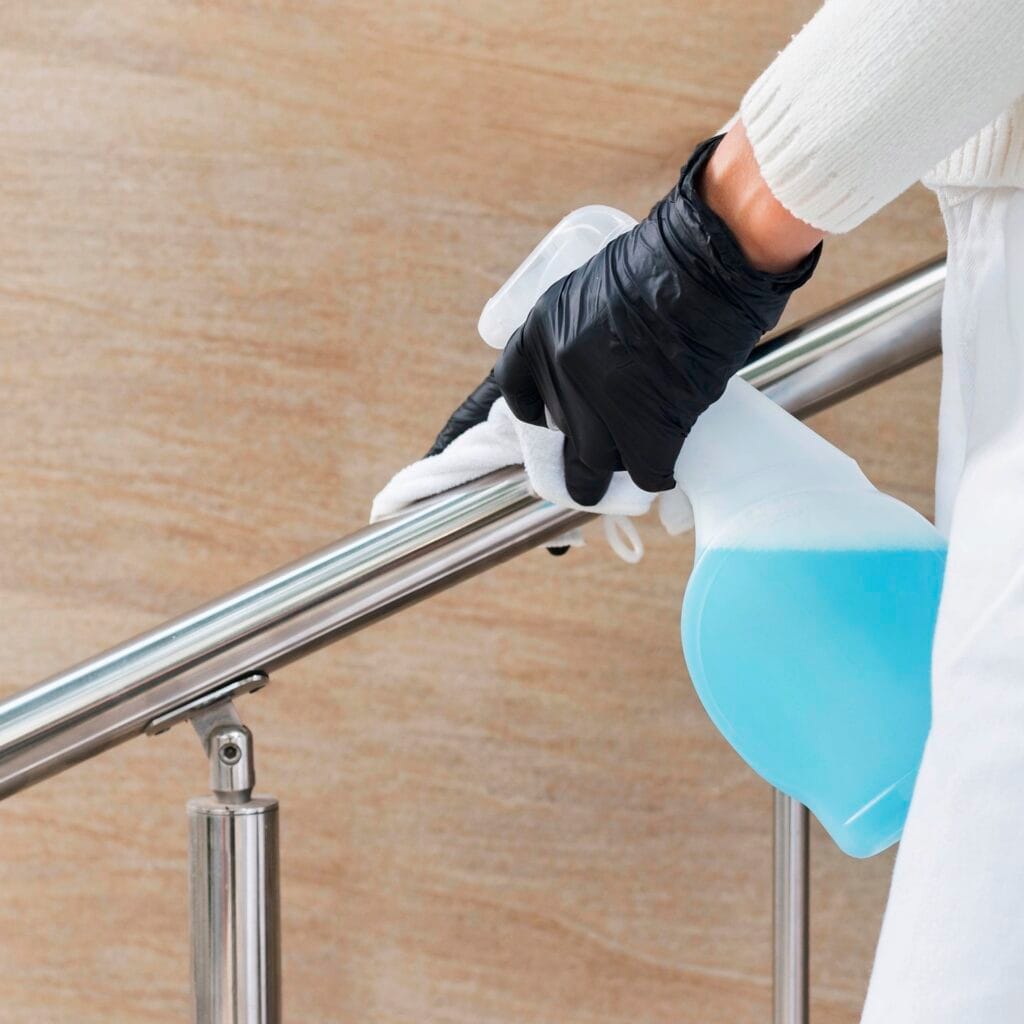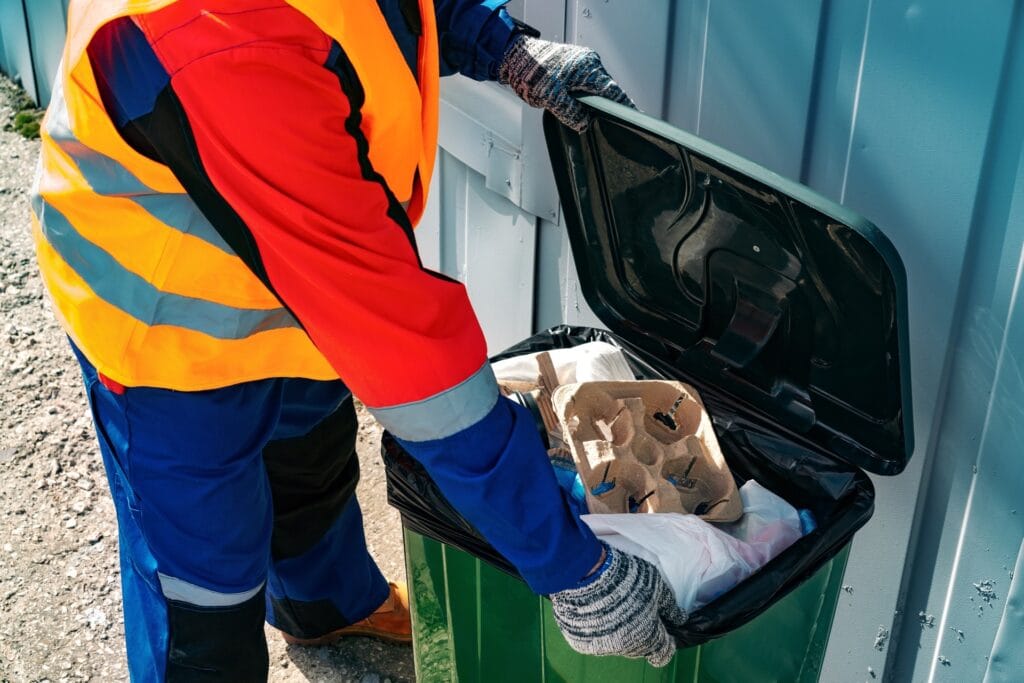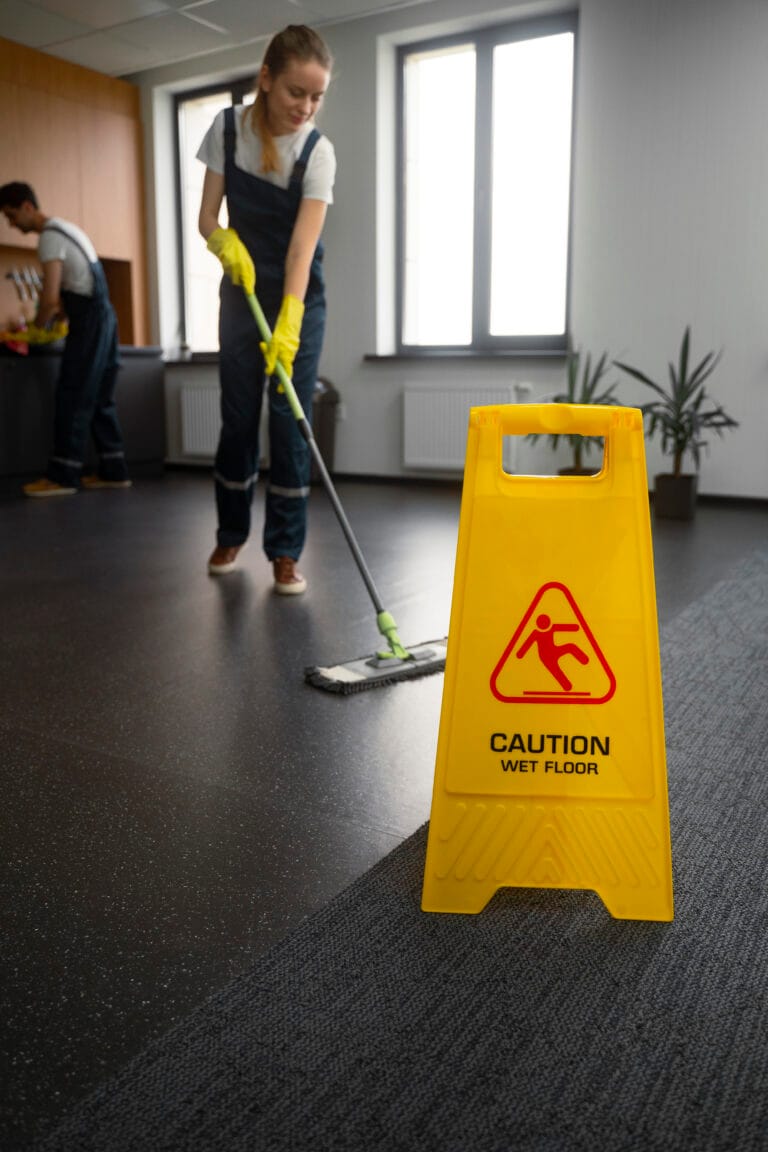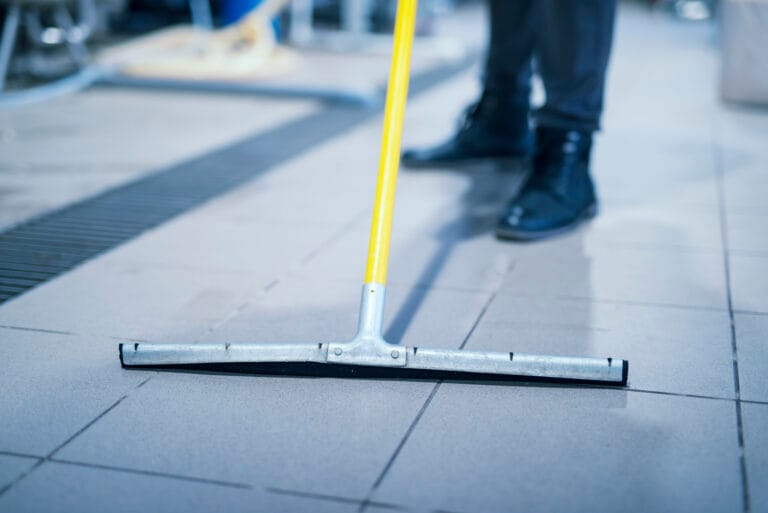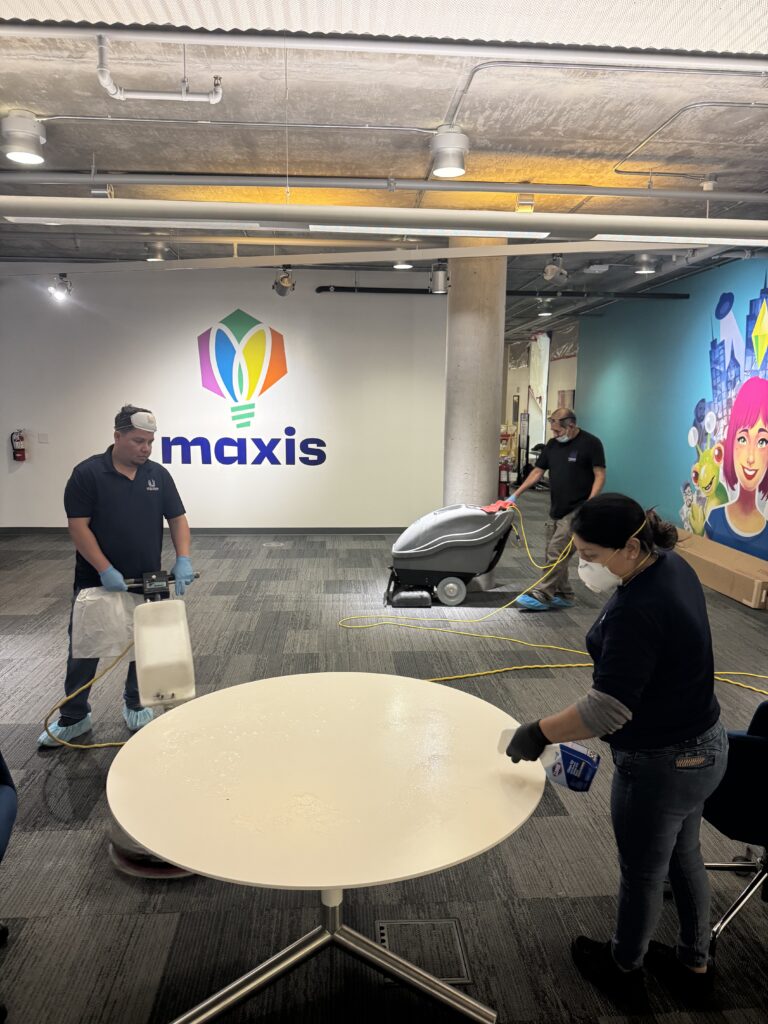OSHA Janitorial Requirements Every California Facility Manager Should Know
The Occupational Safety and Health Administration (OSHA) plays a crucial role in ensuring safe working conditions across various industries, including janitorial services. In Monterey County and Santa Cruz, where the janitorial workforce is essential for maintaining cleanliness and hygiene in public and private spaces, understanding OSHA’s requirements is vital. These regulations are designed to protect workers from potential hazards they may encounter while performing their duties.
By adhering to these standards, employers not only safeguard their employees but also enhance the overall quality of service provided to clients. Janitorial work often involves exposure to various risks, including chemical hazards, physical injuries, and biological threats. Therefore, it is imperative for facility managers and business owners in the region to familiarize themselves with OSHA’s guidelines.
Compliance with these regulations not only helps in creating a safer work environment but also fosters a culture of safety that can lead to increased employee morale and productivity. In this article, we will delve into the specific OSHA requirements that pertain to janitorial services, focusing on the unique challenges faced by workers in Monterey County and Santa Cruz.
Key Takeaways
- OSHA sets requirements for janitorial staff to ensure workplace safety and health
- OSHA plays a crucial role in protecting janitorial workers from workplace hazards
- California has specific OSHA requirements for janitorial staff that must be followed
- Janitorial staff must receive proper training and education to ensure safety and compliance
- Personal protective equipment (PPE) is essential for janitorial workers to protect against workplace hazards
Understanding OSHA’s Role in Protecting Janitorial Workers
Regulations for Janitorial Workers
OSHA sets forth regulations that address the specific hazards janitorial workers may face, covering a wide range of topics including chemical safety, personal protective equipment (PPE), and ergonomic practices. These regulations aim to minimize workplace injuries and illnesses, promoting a healthier workforce.
OSHA’s Role in Monterey County and Santa Cruz
In Monterey County and Santa Cruz, where the janitorial industry plays a vital role in maintaining public health and safety, OSHA’s role becomes even more significant. The agency not only enforces compliance with regulations but also provides resources and support to help employers understand their responsibilities.
Fostering a Collaborative Approach
By providing guidance on implementing safety protocols effectively and ensuring workers are trained to recognize and mitigate potential hazards, OSHA helps create a safer environment for janitorial staff. By fostering a collaborative approach between employers and OSHA, the agency promotes a healthier and safer workforce.
California-Specific OSHA Janitorial Requirements
California has its own set of regulations that complement federal OSHA standards, known as Cal/OSHThese state-specific requirements are tailored to address the unique challenges faced by workers in California, including those in the janitorial sector. For instance, Cal/OSHA mandates that employers provide a safe workplace free from recognized hazards, which includes ensuring proper ventilation when using cleaning chemicals and providing adequate training on their safe use. In addition to general safety requirements, California has specific regulations regarding heat illness prevention, which is particularly relevant for janitorial workers who may be exposed to high temperatures while working outdoors or in poorly ventilated areas.
Employers are required to implement measures such as providing access to water, shade, and rest breaks to prevent heat-related illnesses. Understanding these state-specific requirements is essential for facility managers in Monterey County and Santa Cruz to ensure compliance and protect their employees.
Training and Education Requirements for Janitorial Staff
Training and education are critical components of OSHA’s requirements for janitorial staff. Employers must provide comprehensive training programs that cover various aspects of workplace safety, including hazard recognition, safe handling of chemicals, and proper use of PPE. This training should be conducted regularly and updated as necessary to reflect any changes in procedures or regulations.
In Monterey County and Santa Cruz, where the janitorial workforce may include individuals from diverse backgrounds with varying levels of experience, it is essential to tailor training programs to meet the needs of all employees. This may involve offering multilingual training sessions or hands-on demonstrations to ensure that all workers fully understand safety protocols. By investing in training and education, employers not only comply with OSHA requirements but also empower their staff to take an active role in maintaining a safe work environment.
Personal Protective Equipment (PPE) for Janitorial Workers
Personal protective equipment (PPE) is a fundamental aspect of workplace safety for janitorial workers. OSHA requires employers to assess the hazards present in their facilities and provide appropriate PPE to protect employees from potential risks. This may include gloves, masks, goggles, and other protective gear designed to minimize exposure to harmful substances or physical injuries.
In Monterey County and Santa Cruz, where janitorial staff may encounter various hazards such as chemical spills or sharp objects, the proper use of PPE is crucial. Employers must ensure that workers are trained on how to select, use, and maintain their PPE effectively. Additionally, regular inspections should be conducted to ensure that equipment is in good condition and replaced as necessary.
By prioritizing PPE usage, facility managers can significantly reduce the risk of injuries and illnesses among their janitorial staff.


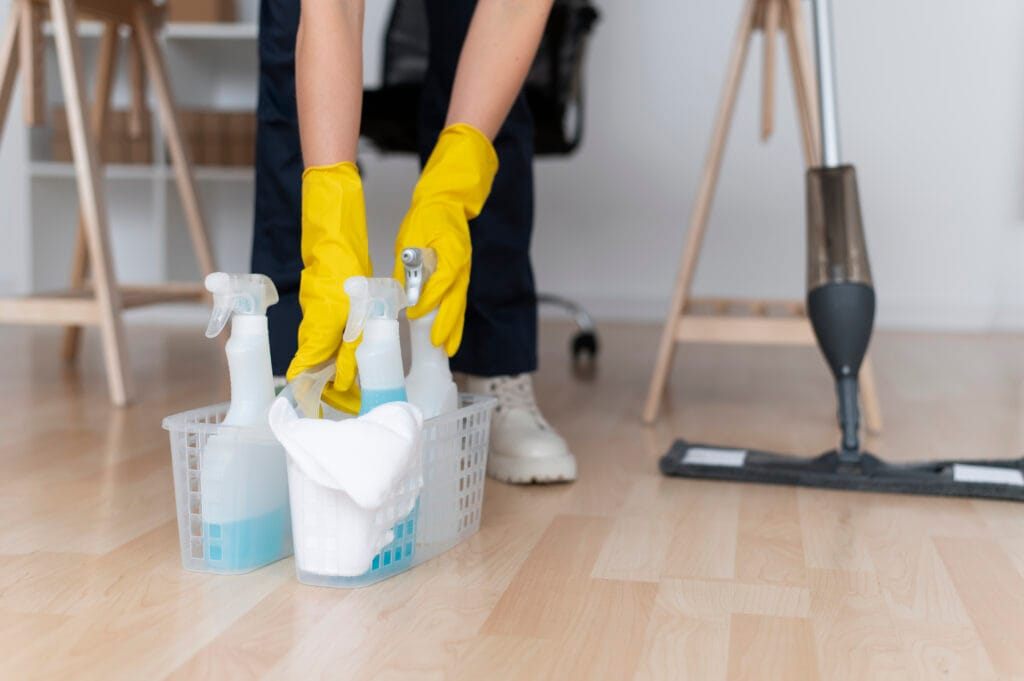
Hazard Communication and Chemical Safety
Hazard communication is another critical area addressed by OSHA’s regulations for janitorial services. Employers are required to inform their employees about the hazardous chemicals they may encounter while performing their duties. This includes providing access to Safety Data Sheets (SDS) for all chemicals used in the workplace, which outline the potential hazards and safe handling procedures.
In Monterey County and Santa Cruz, where janitorial staff often work with a variety of cleaning agents and disinfectants, effective hazard communication is essential for ensuring safety. Employers must implement a comprehensive hazard communication program that includes labeling chemicals properly and conducting training sessions on how to read labels and understand SDS. By fostering a culture of awareness regarding chemical safety, facility managers can help prevent accidents and promote a safer working environment for their employees.
Bloodborne Pathogens and Infectious Waste Management
Janitorial workers may also face risks associated with bloodborne pathogens and infectious waste management. OSHA has established specific standards for handling potentially infectious materials, which are particularly relevant for those working in healthcare facilities or areas where there is a higher likelihood of exposure to bodily fluids. Employers must develop protocols for safely handling, disposing of, and cleaning up after incidents involving blood or other potentially infectious materials.
In Monterey County and Santa Cruz, where healthcare facilities are prevalent, it is crucial for janitorial staff to receive specialized training on bloodborne pathogens and infectious waste management. This training should cover proper procedures for using PPE when dealing with such materials, as well as how to respond effectively in case of an exposure incident. By implementing robust protocols for managing infectious waste, facility managers can protect their employees while ensuring compliance with OSHA regulations.



Ergonomics and Safe Work Practices for Janitorial Staff
Ergonomics plays a significant role in preventing musculoskeletal disorders among janitorial workers. The nature of janitorial work often involves repetitive motions, heavy lifting, and prolonged periods of standing or bending, which can lead to injuries over time. OSHA encourages employers to implement ergonomic practices that promote safe work habits and reduce the risk of injury.
In Monterey County and Santa Cruz, facility managers should assess the tasks performed by their janitorial staff and identify areas where ergonomic improvements can be made. This may include providing tools designed to reduce strain on the body, such as adjustable cleaning equipment or carts for transporting heavy items. Additionally, training sessions focused on proper lifting techniques and body mechanics can help employees perform their tasks safely.
By prioritizing ergonomics in the workplace, employers can enhance employee well-being while minimizing the risk of injuries.
Recordkeeping and Reporting Requirements for Janitorial Incidents
OSHA mandates that employers maintain accurate records of workplace injuries and illnesses. For janitorial operations in Monterey County and Santa Cruz, this means documenting any incidents that occur within the workplace, including near misses or accidents involving employees or clients. Proper recordkeeping not only helps employers track safety performance but also ensures compliance with OSHA regulations.
In addition to maintaining records of incidents, employers must also report certain types of injuries or illnesses to OSHA within specified timeframes. This includes fatalities or severe injuries that require hospitalization or result in loss of consciousness. By adhering to these reporting requirements, facility managers can demonstrate their commitment to workplace safety while contributing valuable data that can help improve safety practices across the industry.
OSHA Inspections and Compliance for Janitorial Operations
OSHA conducts inspections to ensure compliance with safety regulations across various industries, including janitorial services. These inspections may be triggered by employee complaints, referrals from other agencies, or as part of routine enforcement activities. For facility managers in Monterey County and Santa Cruz, understanding the inspection process is essential for maintaining compliance.
During an inspection, OSHA representatives will evaluate the workplace for potential hazards and assess whether employers are adhering to safety regulations. This includes reviewing training records, PPE usage, hazard communication practices, and incident reports. Facility managers should be prepared for inspections by ensuring that all safety protocols are in place and that employees are knowledgeable about their rights under OSHA regulations.
By fostering a culture of compliance within their organizations, employers can minimize the likelihood of violations during inspections.
Resources and Support for California Facility Managers to Ensure OSHA Compliance
To assist facility managers in Monterey County and Santa Cruz with ensuring OSHA compliance, various resources are available at both state and federal levels. OSHA provides a wealth of information on its website regarding safety standards, training materials, and best practices for various industries. Additionally, Cal/OSHA offers resources specifically tailored to California employers.
Local organizations such as industry associations or chambers of commerce may also provide support through workshops or training sessions focused on workplace safety. Networking with other facility managers can offer valuable insights into effective compliance strategies as well. By leveraging these resources, facility managers can stay informed about regulatory changes while implementing best practices that promote a safe working environment for their janitorial staff.
In conclusion, understanding OSHA’s requirements is essential for ensuring the safety of janitorial workers in Monterey County and Santa Cruz. By prioritizing training, PPE usage, hazard communication, ergonomics, recordkeeping, compliance with inspections, and utilizing available resources, facility managers can create a safer work environment that protects employees while enhancing service quality.
FAQs
What are OSHA janitorial requirements?
OSHA janitorial requirements are regulations set by the Occupational Safety and Health Administration (OSHA) to ensure the safety and health of janitorial workers in the workplace. These requirements cover a wide range of topics including chemical safety, equipment safety, and training.
What are some key OSHA janitorial requirements in California?
Some key OSHA janitorial requirements in California include providing proper training on chemical hazards, ensuring the use of personal protective equipment, maintaining safe equipment and tools, and implementing effective cleaning procedures to prevent slips, trips, and falls.
Why is it important for facility managers in California to know OSHA janitorial requirements?
It is important for facility managers in California to know OSHA janitorial requirements to ensure the safety and well-being of janitorial workers, avoid potential OSHA violations and penalties, and create a safe and healthy work environment for all employees.
How can facility managers stay updated on OSHA janitorial requirements?
Facility managers can stay updated on OSHA janitorial requirements by regularly checking the OSHA website for updates and resources, attending OSHA training sessions and seminars, and consulting with OSHA compliance experts or professionals.


